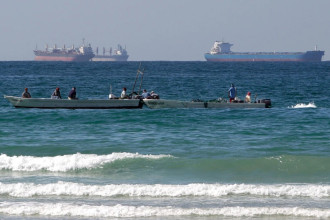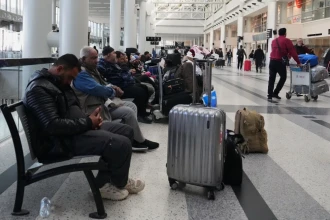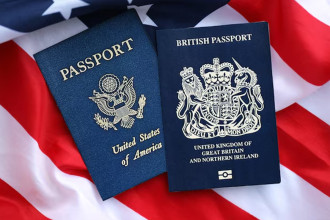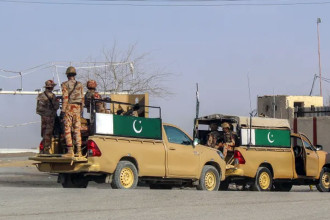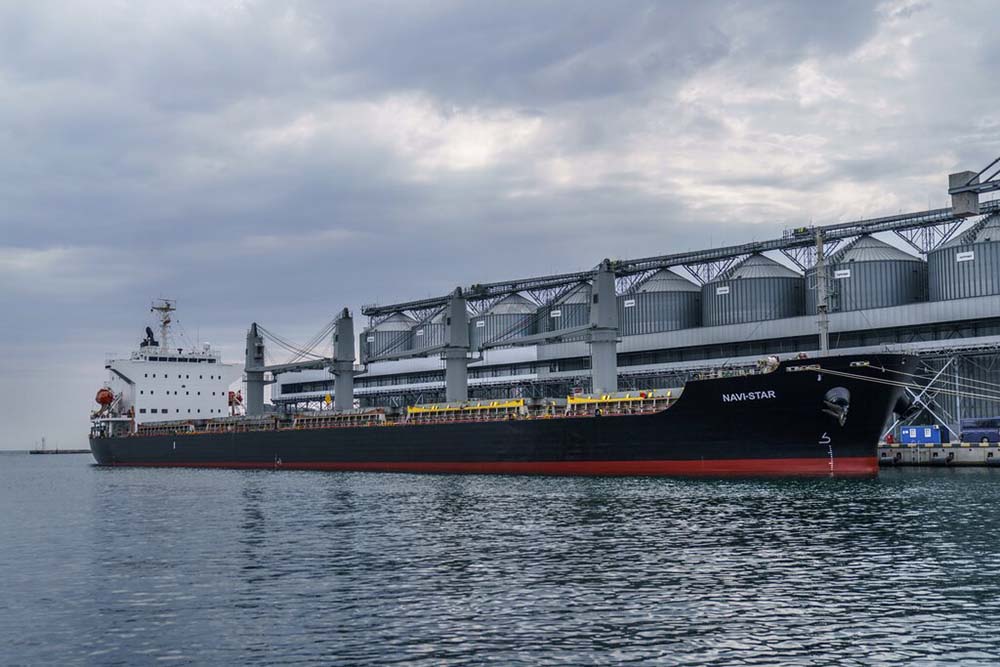
GENEVA: The United Nations is racing to extend a deal that has allowed shipments of Ukrainian grain through the Black Sea to parts of the world struggling with hunger, helping ease a global food crisis exacerbated by the war Russia launched more than a year ago.
The breakthrough accord that the UN and Turkey brokered with the warring sides last summer came with a separate agreement to ease shipments of Russian food and fertiliser that Moscow insists hasn't been applied.
Russia set a Thursday deadline for its concerns to be ironed out or it's bowing out. Such brinkmanship isn't new: With a similar extension in the balance in March, Russia unilaterally decided to renew the deal for just 60 days instead of the 120 days outlined in the agreement.
UN officials and analysts warn that a failure to extend the Black Sea Grain Initiative could hurt countries in Africa, the Middle East and parts of Asia that rely on Ukrainian wheat, barley, vegetable oil and other affordable food products, especially as drought takes a toll. The deal helped lower prices of food commodities like wheat over the last year, but that relief has not reached kitchen tables.
"If you have a cancellation of the grain deal again, when we're already at a pretty tight situation, it's just one more thing that the world doesn't need, so the prices could start heading higher," said William Osnato, a senior research analyst at agriculture data and analytics firm Gro Intelligence. "You don't see relief on the horizon."
UN humanitarian chief Martin Griffiths told the Security Council on Monday that the deal was "critical" and talks were ongoing.
Negotiators who gathered in Istanbul last week made little apparent headway. Ukrainian Deputy Prime Minister Oleksandr Kubrakov said the grain deal "should be extended for a longer period of time and expanded" to "give predictability and confidence" to markets.
Moscow says it opposes broadening or indefinitely expanding the deal. Kremlin spokesman Dmitry Peskov said Tuesday that there's an "intense session of contacts" but that "a decision is yet to be made."
Russia, meanwhile, is rapidly shipping a bumper harvest of its wheat through other ports. Critics say that suggests Moscow is posturing or trying to wrest concessions in other areas — such as on Western sanctions — and claim it has dragging its heels on joint inspections of ships carried out by Russian, Ukrainian, UN and Turkish officials.
Average daily inspections — meant to ensure vessels carry only food and not weapons — have steadily dropped from a peak of 10.6 in October to 3.2 last month.
Russia denies slowing the work, with shipments of Ukrainian grain also declining in recent weeks.
"We cannot agree that the role of the Russian representative (inspector) should be reduced to automatic rubber-stamping, or approval, or appeals submitted by Kyiv," Russia's ambassador in Geneva, Gennady Gatilov, told reporters last month.
Asked whether a blockade of Ukraine's coast or more attacks on its ports could follow any withdrawal from the agreement, Gatilov said Russian authorities were "considering all possible scenarios if the deal is not extended."
Russia has five main asks, according to Gatilov:
- A restoration of foreign supplies of farm machinery and replacement parts.
- A lifting of restrictions on insurance and access to foreign ports for Russian ships and cargo.
- Resumed operation of a pipeline that sends Russian ammonia, a key ingredient in fertiliser, to a Ukrainian Black Sea port.
- An end to restrictions on financial activities linked to Russia's fertiliser companies.
- Renewed access to the international SWIFT banking system for the Russian Agricultural Bank.
Published Date: May 17, 2023, 12:00 am
Post Comment
E-Magazine
RELATED International


